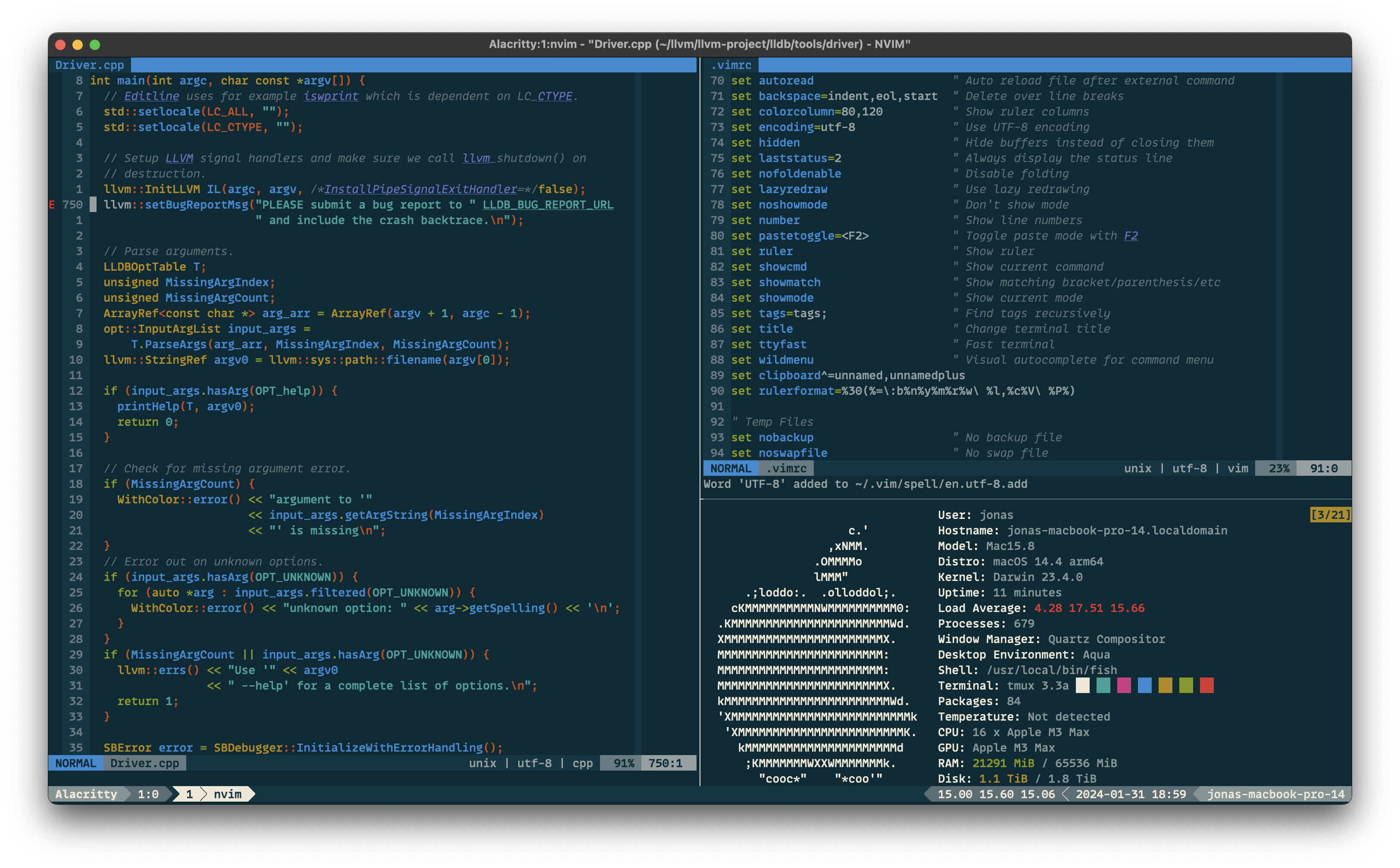This is my dotfile repository. There are many like it, but this one is mine.
I did my best to make everything work as transparently as possible under both Linux and macOS.
Feel free to try out my dotfiles or use them as inspiration! If you have a suggestion, improvement or question, don't hesitate to open an issue.
Clone the dotfiles repository.
cd ~
git clone https://github.com/JDevlieghere/dotfiles.git
cd dotfiles
Use the bootstrap script to do everything from synchronizing the files to installing additional fonts.
Usage: bootstrap.sh [options]
-s, --sync Synchronizes dotfiles to home directory
-i, --install Install (extra) software
-f, --fonts Copies font files
-c, --config Configures your system
-a, --all Does all of the above
./bootstrap.sh -a
If you decide to use this configuration as is, don't forget to change your name
and e-mail address in the .gitconfig and .hgrc files.
Vim is my editor of choice. Most of my .vimrc should be self-explanatory. For C++ development, I rely heavily on YouCompleteMe for which I created a better .ycm_extra_conf.py.
My tmux configuration will display your WAN IP address in the bottom right corner. Instead of constantly polling for the current IP, it reads a cache file which is updated every five minutes by a cron job.
*/5 * * * * curl -s http://whatismyip.akamai.com > ~/.tmux.cache.ip
To enable italics you will need to compile and install tmux.terminfo.
tic -x tmux.terminfo
My git is configured to sign every commit with the machine's GPG key.
I use fish shell, a smart and user-friendly command line shell for macOS, Linux, and the rest of the family.
chsh -s $(which fish)
Remember that on macOS you'll have the fish's path to /etc/shells.
- My xmonad configuration is based on Vic Fryzel's configuration.
- The
os/macos.shscript with sensible macOS defaults is forked from Mathias Bynens' dotfiles.
